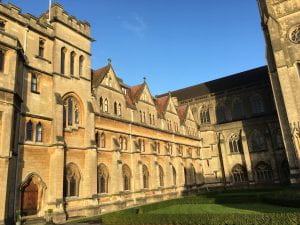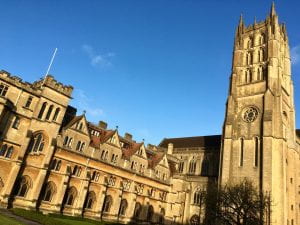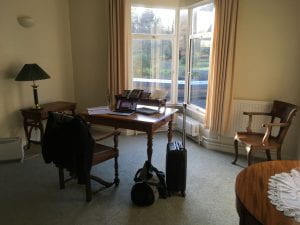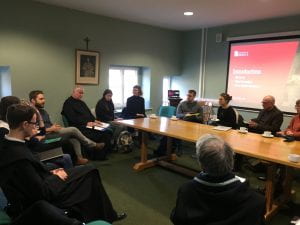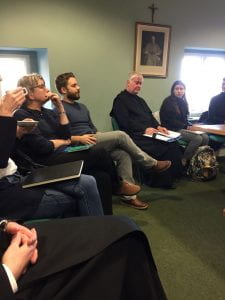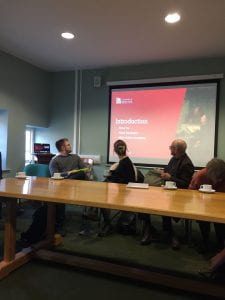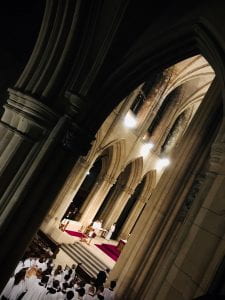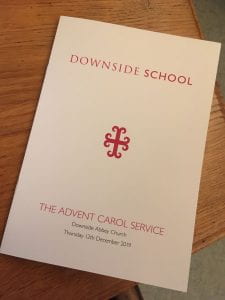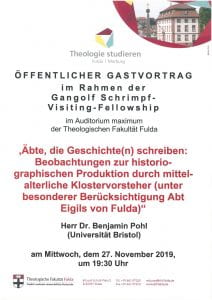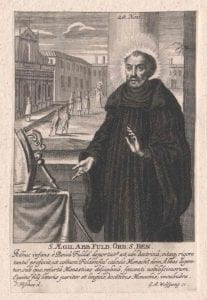In early December, I (Benjamin Pohl) spent one week living amongst the Benedictine monks of Downside Abbey.
During this monastic retreat, I had the fantastic opportunity to take part in the community’s daily life and routine – incl. the liturgy of the hours (horarium) -, to experience the monastic way of life first-hand and, not least, to speak and listen to the monks about the role that history plays in their various activities inside and outside the monastery. This experience has provided me with invaluable insights into the close relationship between history, liturgy, identity and time within a religious communal setting that will feed directly into the project’s research outputs (incl. my forthcoming monograph).
What is more, I also arranged and hosted the first in our series of project workshops at Downside on the subject of ‘History & Community’. The workshop was very well attended and, besides the monks and myself, included participants from the University of Bristol (PGT and PGR students as well as staff) and the regional non-academic community. Together we spent a half-day discussing the various ways in which a sense of history (or ‘historical consciousness’) informs communal communication and memory formation both past and present. The next workshop will take place in the spring of 2020 and serve to continue and expand these conversations with a specific aim towards setting up a special exhibition at Downside Abbey in late 2020/2021. Make sure to subscribe to our email alert (link at the bottom of this blog) and follow us on Twitter to keep up-to-date with our event schedule and the latest announcements.
As a special bonus, I was invited to attend the Advent Carol Service inside Downside’s magnificent abbey church, which I watched from the exclusive angle of the monks’ gallery – best seats in the house!


